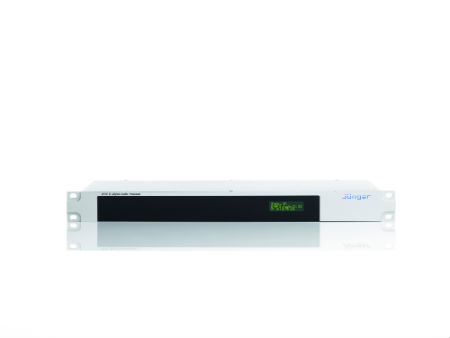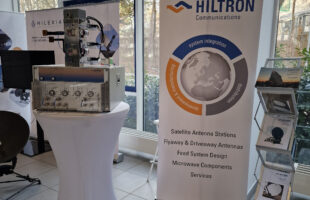
Berlin, Germany – Digital audio specialist Jünger Audio is using the IBC 2014 platform to launch a new Codec Edition of its D*AP8 Digital Audio Processor.
Junger Audio DAP8 MAP Processor
This unique device has a vital role to play in today’s broadcast environment because it is the only combination of broadcast audio codec and processor on the market that can carry out real-time metadata emulation.
Peter Poers, CEO of Jünger Audio, said, “Following Dolby’s decision in 2013 to discontinue its DP570 Multichannel Audio Tool, we are now the sole company in the world making and supplying a product that fills that gap. Our D*AP8 Codec Edition incorporates a Dolby decoder as standard and with a choice of optional encoders means that broadcast engineers in post-production, DVD and DTV facilities can check the quality of Dolby Digital AC3/E-AC3 encoded audio prior to transmission. Without this product, it is fair to say that broadcast engineers would not be able to carry out precise real-time metadata emulation in recent build production environments and would therefore have no way of checking exactly what television audiences hear at home.”
Mike Babbitt, Senior Manager, Professional Support Dolby Laboratories, Inc., said, “Dolby is happy to partner with Jünger Audio in bringing critical and innovative broadcast-enablement products to the worldwide broadcast community. Through our technical partnerships with valued partners like Jünger Audio, Dolby is continuing to enable current and next-generation broadcast and OTT workflows to provide consumers with the ‘In Dolby’ experience.”
The D*AP8 Codec Edition features a built-in Dolby® Metadata generator and Dolby® decoder that allows users to decode Dolby-E, Dolby-D (AC-3) and Dolby Digital plus (E-AC-3).
“Metadata is important because it ensures that television audiences at home hear their programmes the way producers and content creators intended them to be. All kinds of audio parameters, including Loudness levels, are controlled this way. In countries where you can be fined if you get audio loudness wrong, it’s vital that broadcasters can check exactly what consumers will hear before material leaves their facilities,” Poers added.
By incorporating SDI I/O with 3G/HD/SD auto detection, the D*AP8 Codec gives users the option of dealing with all 16 channels of SDI embedded audio at the same time. It is also possible to send further embedded programmes to D*AP8 MAP’s AES outputs to feed a third party instrument for analysing and/or display.
The D*AP8 Codec SDI board also acts as an embedder and comes with video delay to compensate for any kind of audio delay. This feature is ideal for those looking to maintain lip sync before encoding in QA suites or control rooms.
“Now that most of the DP products are no longer available, broadcast engineers still need hardware based solutions that can decode and encode Dolby®-E, Dolby®-D (AC-3) and Dolby® Digital plus (E-AC-3), as well as HE-AAC formats, and provide the essential metadata emulation function,” Poers explained. “Our D*AP8 Codec Edition is the latest unit on the market that can offer various combinations of this and is effectively the successor of not just the DP570, but also in combination with the DP564/569 and 571/572.”









